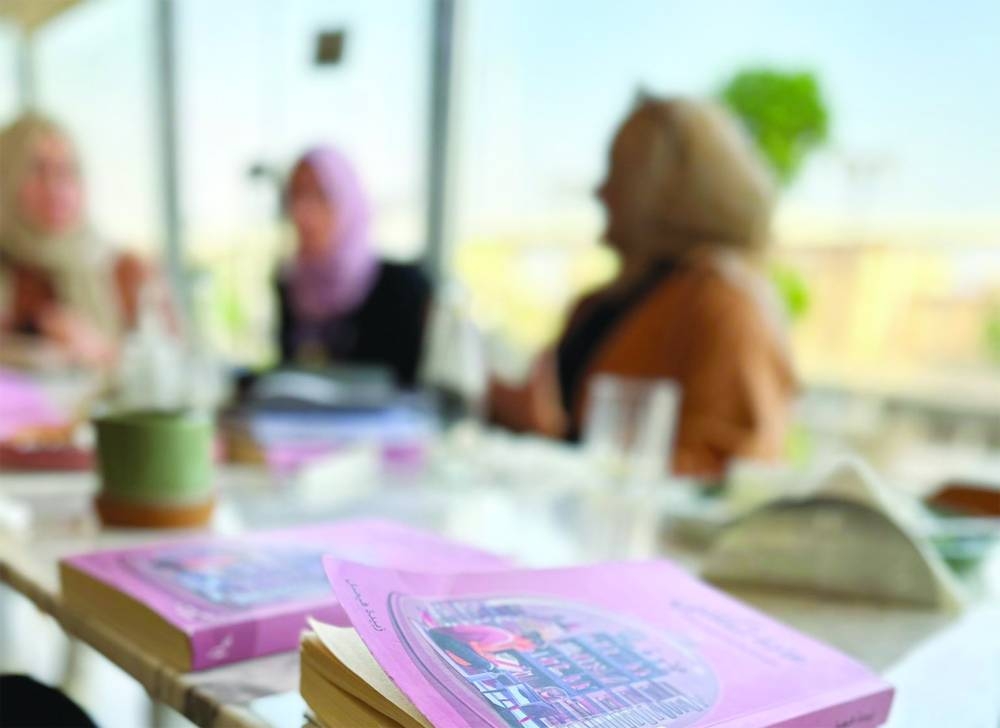Every month a group of women gather in a cafe together, chatting animatedly each with the same book in front of them.
When the group is complete, they all quiet down as the discussion’s moderator starts talking about the book.
After an hour- and-a-half, they are no longer quiet, each in their own lively conversations criticising the author’s choice of words and what the bird in the first paragraph symbolised.
This gathering is a book club discussion meeting, one part of the larger book community in Qatar.
Qatar’s literary scene has slowly developed through the years. With the opening of Qatar’s National Library (QNL) in 2017, the book community in Qatar has become more pronounced.
To date there are more than three Qatari initiatives dedicated solely to reading and books including Khair Jalees, Qatar Reads, and Reading with Love.
QNL does more than just provide books.
According to Muneera al-Buainain, head of Children at QNL, there are early literacy programmes for children, book clubs, art exhibitions and educational workshops aimed at improving literacy rates across the country and region.
While QNL is for the community, Khair Jalees is from the community.
Khair Jalees began in 2013 when a group of women started reading one book together.
Today Khair Jalees is a book club with 22 groups and approximately 330 members within it, each group meets monthly to discuss their book of the month.
Different clubs have their own theme and language, one club, Qanadel, reads books that revolve around and are set in Jerusalem.
Notably, Khair Jalees collaborated with Qatar Reads, a book-led initiative, in their One Book, One Doha campaign where they hosted a book discussion for Kalila-Wa-Dimna.
The One Book, One Doha campaign works on bringing the Qatari community together to read one book.
Qatar Reads, an initiative started in 2016, is now under QNL, focused on making reading an everyday activity to change our community.
Reham Kayyali, content co-ordinator of Qatar Reads said that “The fastest way to get to a society of creators, thinkers, researchers, and innovators is to create a society of readers”.
Under Qatar Reads there are membership programmes that help create a shared reading experience.
For example, the Family Reading Programme launched in 2019 is a subscription-based service for ages 3-13 where children receive books monthly straight to their homes tailored to each family’s interests and ages.
While there are enough bookstores in Qatar, Kayyali said, there are not enough readers.
In contrast, Sara al-Hajri, a student at Georgetown University in Qatar and an avid reader, believes there is a lack of independent bookstores that offer distinct literature in Qatar.
“I don’t want to go to five bookstores and see the same books,” she explained.
Al-Kuwair said that as a book club they too struggle with the availability of books.“We do not have diversity in the book market in Qatar,” she said.
Since the pandemic hit there has been a rise of online bookstores on Instagram, either selling used books or publications typically unavailable in the country.
The Instagram account Book Spear is an online bookstore that was launched in 2020 and has already gathered over 2,000 followers.
While al-Hajri enjoys reading in both English and Arabic, not everybody does.
Hana Kurdi, a teacher, and educational programmes co-ordinator discovered that there is a significant number of children who have detached from Arabic because of finding it challenging.
So, she started her own initiative, Reading with Love (@alqeraabehob) where she teaches children, parents and teachers how to grow the love of reading in Arabic to children through love rather than compulsion.
In the future Kurdi plans to establish an institute to unite the Arabic reading community and offer educational training for teachers and parents alike.
Al-Kuwari sees a bright future for the book scene in Qatar.
“People love to read,” she asserts, “I don’t think anyone dislikes reading; rather they just haven’t found the right book yet”.

